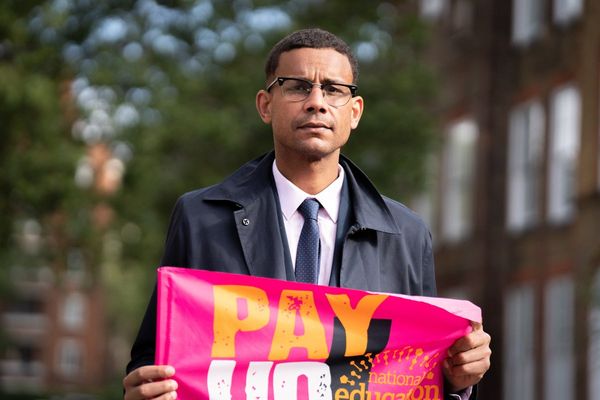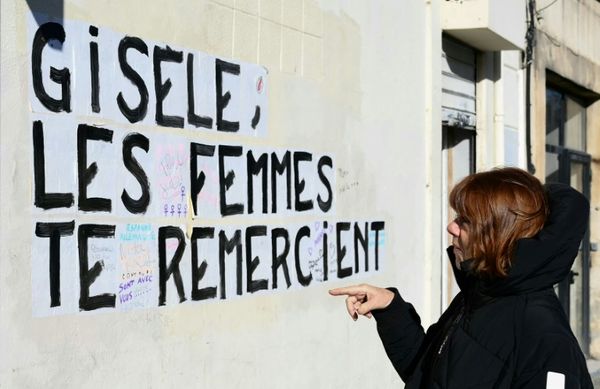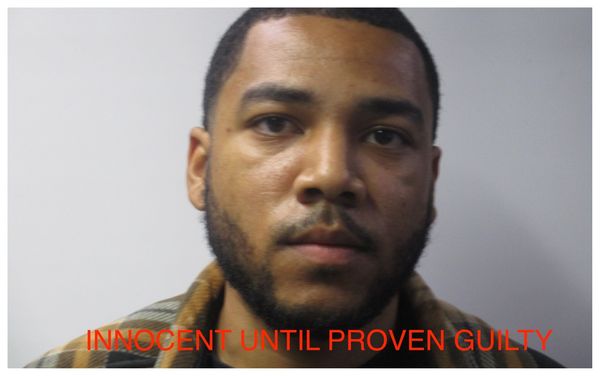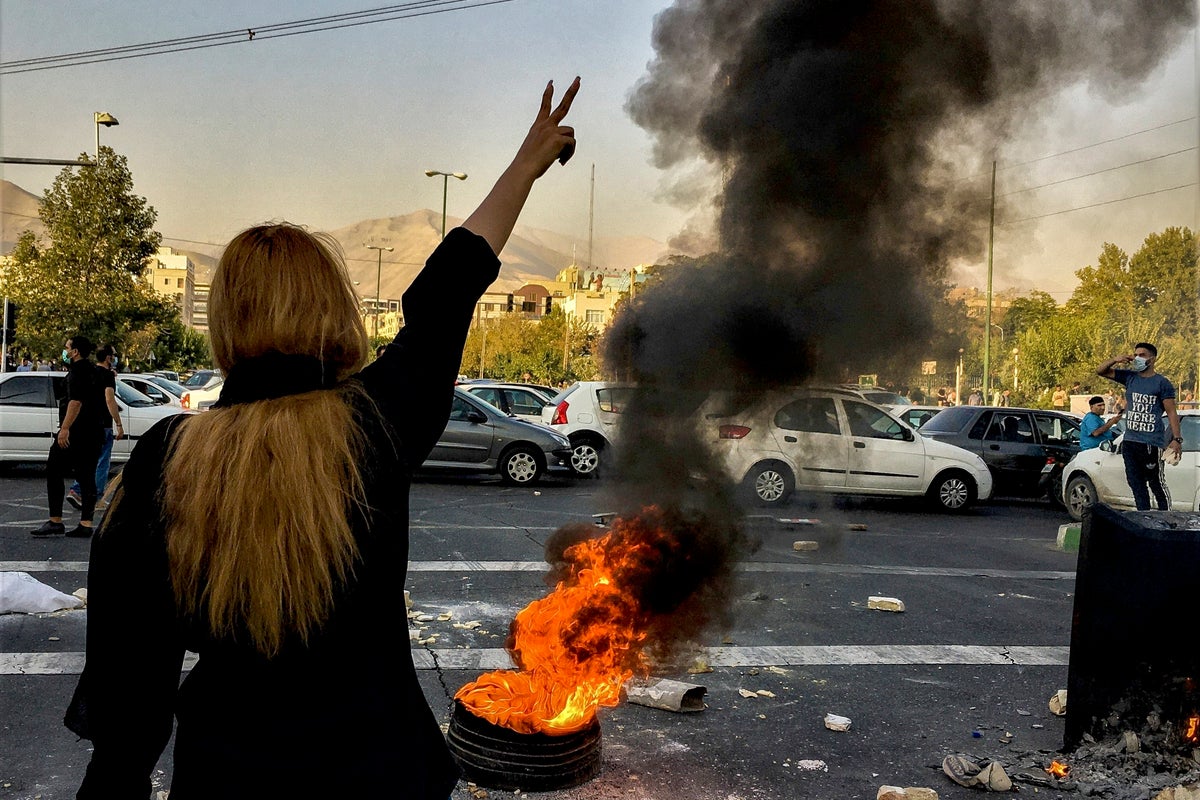
Sara* had barely begun to take part in the protest near a square in the western Iranian city of Kermanshah. She, her sisters and their mother took off their hijabs and began chanting slogans: “Death to the dictator,” they cried. That’s when plainclothes and uniformed members of the security forces arrayed nearby swooped in. They grabbed the women and shoved them into vehicles.
Sara, her mother and her sisters resisted and tried to get away. But the police assured them they would be held for just an hour if they came willingly and simply allowed the authorities to record their names.
Instead, the 32-year-old and her family were eventually held for weeks in squalid detention centres, following the protest towards the end of last year. Sara recounts being threatened and subjected to abuse and humiliation before being handed draconian charges and released on bail at an astronomical cost. She and her family were roughed up, separated from each other, and taken one by one into an interrogation room.
“They took off the blindfold,” Sara says in a phone interview. “They told me to remove my clothes. I noticed there was a camera. They told me they would beat me if I didn’t strip.”
She was terrified. Many years earlier, she says, she had been arrested as a Kurdish activist and brutally raped by security forces. “When they told me to take my clothes off, I thought five or six men would come rushing in,” she says of her latest ordeal.
Harrowing accounts of abuse and deprivation are emerging from inside Iran’s network of some 250 long-overcrowded detention centres. Tens of thousands of protesters and activists have been detained during four months of protests sparked by the death in custody of 22-year-old Mahsa Amini, who had been detained by the morality police for allegedly failing to wear proper Islamic clothing.
Protesters have demanded an overthrow of the Islamic Republic and called for the toppling of its leader, Ayatollah Ali Khamenei. The response has been harsh. In addition to the jailings, four young protesters have been executed after short, secret trials condemned as highly irregular by international observers.
Tehran has sent the message that no one is safe from prosecution. This week a court sentenced Faezeh Hashemi, the daughter of former Iranian president Akbar Hashemi Rafsanjani, to five years in prison after she was arrested in September on charges related to the protests.
The Oslo-based monitoring group Hrana estimates that 20,000 protesters have been arrested, but some legal experts and activists suggest the number could be even higher. Every day, hundreds of activists alongside family members of the detained gather in front of detention facilities in vigils, seeking to draw attention to those held inside.
Some attribute the relative decline in protests in recent weeks to the detention of the informal protest leaders who have emerged from the movement.
In an interview from Iran, a thirtysomething legal expert and activist in the city of Arak described to The Independent his own recent arrest and what it showed him about the determination to stamp out the protests.
I was told they would beat me if I didn’t strip— Iranian protester
He said he was abducted by security forces while sitting with friends at a restaurant in Arak in mid-October. He was shoved into a car, blindfolded, and taken to several detention centres over the course of the next several days.
Well connected and media savvy, he was spared beatings during his ordeal – except for one time, when he refused to give interrogators the password to his phone. But even while blindfolded, he heard prisoners weeping in agony and begging to be released. He was eventually stuffed into a ward filled with some 50 prisoners, many of them visibly recovering from harsh beatings.
He described a lack of medical attention for the injured, as well as filthy conditions and inedible food.
Over days of hours-long interrogations, he learned that he had been arrested by the intelligence branch of the Revolutionary Guard. He also gained an understanding of the extent to which his activities had been monitored over the weeks of protest.
His interrogator quizzed him about specific tweets and Instagram posts, as well as his comments to media outlets. He realised that the security forces had also used his phone to track him being near the protests, though not in the heart of them; they accused him of being a ringleader. They knew the names of those he had met with, and which other civil society figures were in his proximity.
He said his interrogator demanded: “Why are you encouraging people to protest?” He was eventually charged with “propagandising against the regime” and was freed on bail pending trial.
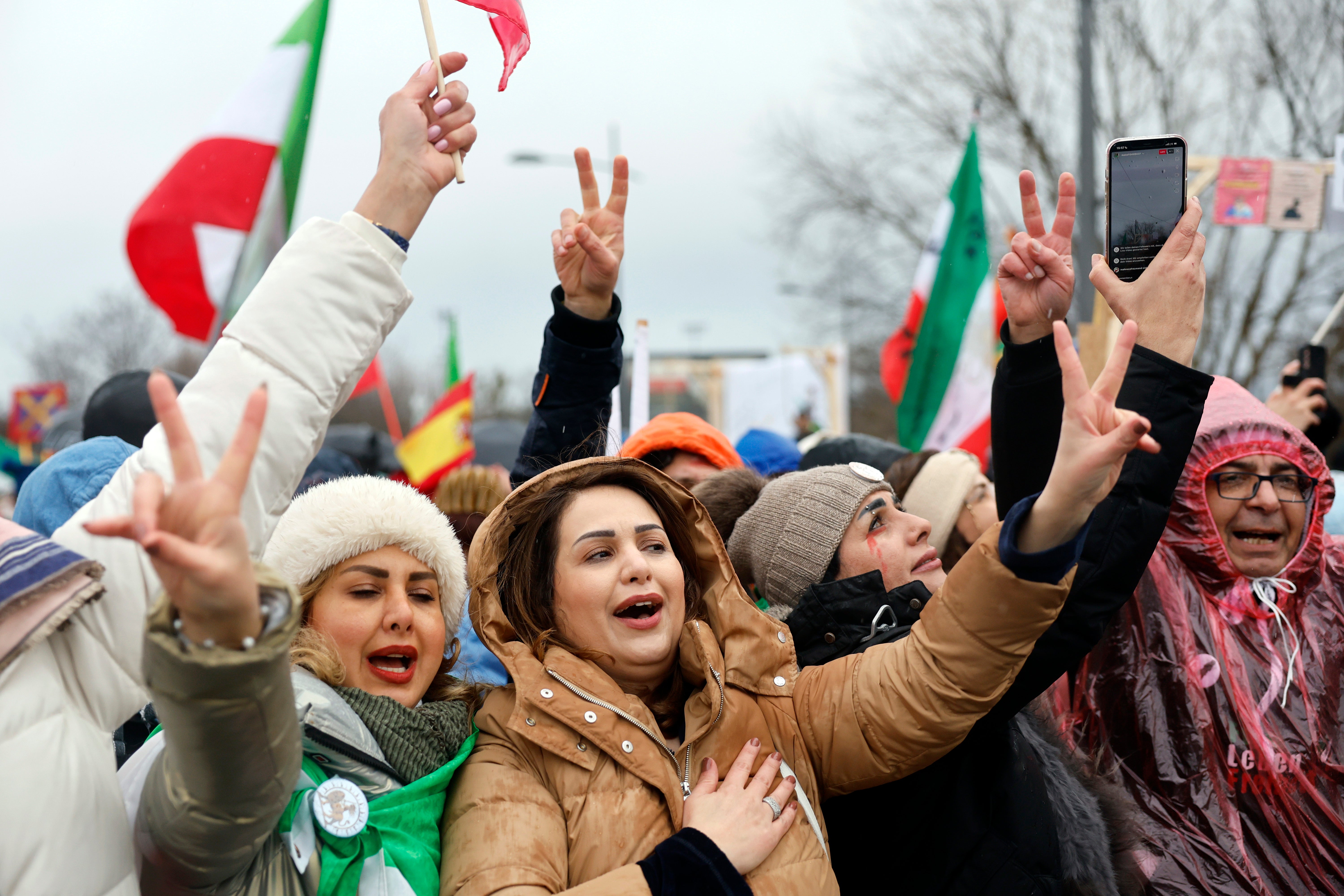
The legal consultant, who has been in and out of Iran’s prisons for much of his adult life, said the experience of being arrested is often enough to discourage all but the most dedicated of activists from protesting.
He described the experience of one 40-year-old woman, who was grabbed by security forces as she was walking home after a protest. “In the car they pulled her hair and threatened to rape her,” he said. “They ordered her to say, ‘God is great. Khamenei is the leader.’ She thought they would rape and murder her.”
Once she had been taken to a police station, the security forces completely changed their behaviour. They became polite and professional, formally charged her, and freed her on an exorbitant bail. She continues to suffer from nightmares about her ordeal and is unlikely ever to return to the protests, said the legal consultant.
Another prisoner, activist Sepideh Qolian – who has been locked up since 2018 – described the brutality of interrogators aiming to extract false confessions from detained protesters, in a written account recently smuggled out of Tehran’s Evin prison.
“The exam room is filled with young boys and girls and the shouts of torturers can be heard,” she wrote in a letter obtained by the BBC. She described overhearing a young man being pressured into admitting he had attacked one of those deployed to suppress the protests.
“It’s freezing cold and snowing. Near the exit door of the building, a young boy blindfolded and wearing nothing but a thin grey T-shirt sat in front of an interrogator,” she wrote. ”He’s shaking and pleading: ‘I swear to God I didn’t beat anyone.’ They want him to confess. As I am passing, I shout: ‘Do not confess,’ and ‘Death to you tyrants.’”
Sara, her mother and sisters say they were held in prison for weeks. They were separated and subjected to repeated interrogations. Each was told that the others had already been released. But eventually they all found themselves in the same general prison ward.
Sara’s husband lives in Europe, and based on the evidence of money he had sent her, she was charged with “collaborating with hostile powers against the regime”, a charge that amounts to treason and carries a potentially heavy prison sentence.
A lawyer in Kermanshah advised the family to head to the Iraqi border and flee the country. Sara was under a travel restriction, so she and her family hired a smuggler to take them across. The path over the Zagros Mountains was gruelling, and she says she broke her leg along the way.
Sara and her relatives are now sheltering in Iraq. A veritable prisoner inside a small flat in an Iraqi jurisdiction with strong political and security ties to Iran’s Revolutionary Guard, she is weighing whether to try to join her husband or wait for the right moment to return to Iran.
“My dream is to go back to Iran,” she says. “My hope is that the revolution succeeds.”
*Names have been changed to protect identities

